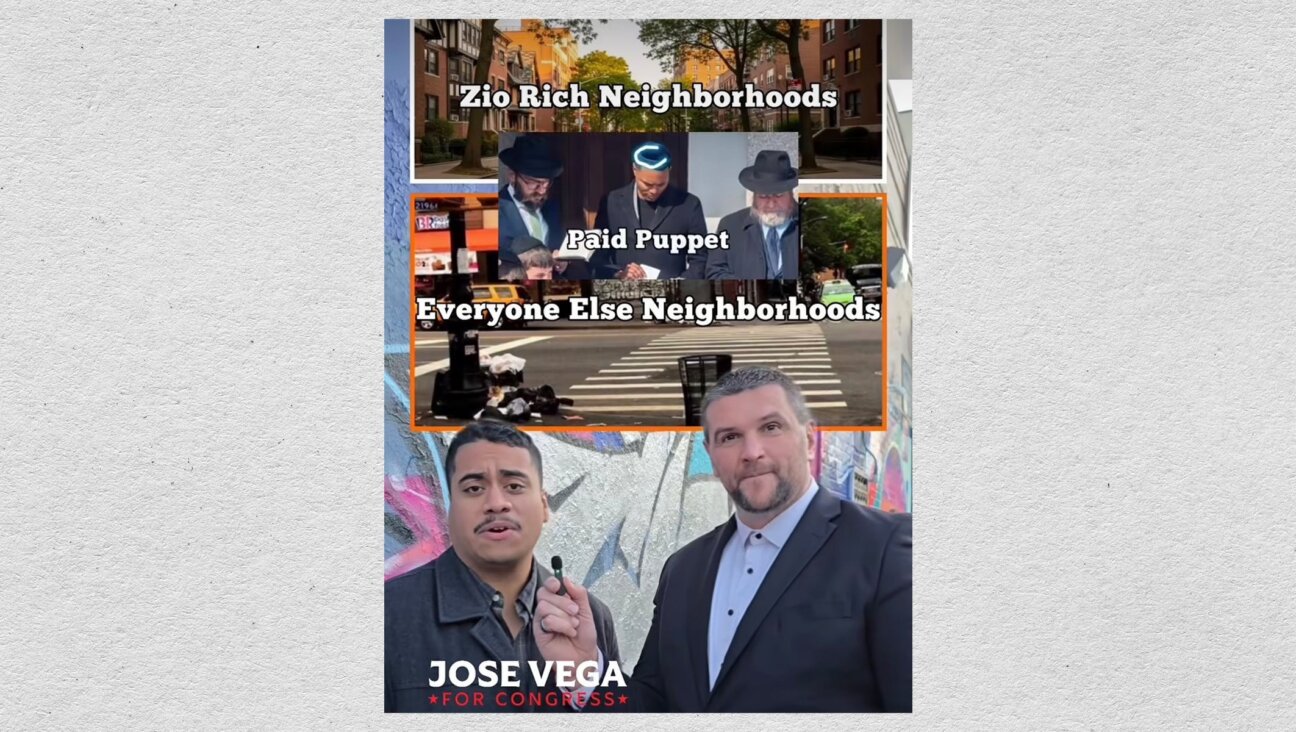Could Rabbi Slaying in Miami Be a Hate Crime?

Graphic by Angelie Zaslavsky
(Reuters) — Police in Miami investigating the killing of a 60-year-old Orthodox rabbi over the weekend said on Monday they haven’t yet decided whether the shooting was a hate crime.
While investigators at a news conference called for witnesses to come forward, Jewish groups have issued conflicting interpretations of Rabbi Joseph Raksin’s murder.
Raksin, a New York City resident who was in Miami visiting relatives, was shot Saturday morning allegedly by one of two black men who approached him as he walked toward a temple in a heavily Jewish enclave of North Miami Beach, according to police. No arrests have been made in the case.
Local representatives of the American Jewish Committee told the Miami Herald that recent acts of vandalism, including the July 28 discovery of what appeared to be a swastika and the name of the Palestinian Islamist group Hamas written on the temple where Raksin was headed, point to the possibility of a hate crime.
The Miami branch of the Anti-Defamation League (ADL) in a statement over the weekend said Raksin’s death appeared to have stemmed from a robbery gone awry.
“While our community is on high alert due to recent anti-Semitic incidents that have coincided with hostilities in the Middle East, we must be careful not to assume this was a hate-motivated crime,” ADL Florida Regional Director Hava Holzhauer wrote.
However some Jewish activists working with Miami-Dade police to investigate Raksin’s death disagreed with the ADL.
“There is one witness who wants to stay anonymous and he watched two guys go up with a gun, kill a guy, and walk away smiling,” said Yona Lunger, a member of North Miami Beach’s Shmira Patrol, which is akin to a neighborhood watch.
Lunger said a woman who attended Raksin’s funeral on Sunday returned home and found what appeared to be a swastika scratched into the family’s car. Miami-Dade police spokeswoman Robin Pinkard confirmed the incident.
While investigators at a news conference called for witnesses to come forward, Jewish groups have issued conflicting interpretations of Rabbi Joseph Raksin’s murder.
Raksin, a New York City resident who was in Miami visiting relatives, was shot Saturday morning allegedly by one of two black men who approached him as he walked toward a temple in a heavily Jewish enclave of North Miami Beach, according to police. No arrests have been made in the case.
Local representatives of the American Jewish Committee told the Miami Herald that recent acts of vandalism, including the July 28 discovery of what appeared to be a swastika and the name of the Palestinian Islamist group Hamas written on the temple where Raksin was headed, point to the possibility of a hate crime.
The Miami branch of the Anti-Defamation League (ADL) in a statement over the weekend said Raksin’s death appeared to have stemmed from a robbery gone awry.
“While our community is on high alert due to recent anti-Semitic incidents that have coincided with hostilities in the Middle East, we must be careful not to assume this was a hate-motivated crime,” ADL Florida Regional Director Hava Holzhauer wrote.
However some Jewish activists working with Miami-Dade police to investigate Raksin’s death disagreed with the ADL.
“There is one witness who wants to stay anonymous and he watched two guys go up with a gun, kill a guy, and walk away smiling,” said Yona Lunger, a member of North Miami Beach’s Shmira Patrol, which is akin to a neighborhood watch.
Lunger said a woman who attended Raksin’s funeral on Sunday returned home and found what appeared to be a swastika scratched into the family’s car. Miami-Dade police spokeswoman Robin Pinkard confirmed the incident.














